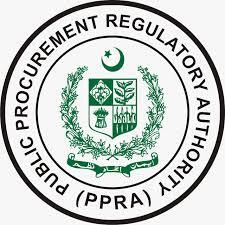ISLAMABAD: In a step towards transparent and efficient governance, the Public Procurement Regulatory Authority (PPRA) has rolled out a fully digital e-Procurement system across more than 9,300 public agencies, marking a landmark reform in Pakistan’s public sector purchasing framework.
Managing Director PPRA Hasnat Ahmed Qureshi, addressing a press briefing in Islamabad, said the e-Pakistan Acquisition and Disposal System (EPADS) has transformed how government agencies procure goods and services, offering end-to-end digitization, real-time alerts, dynamic bid evaluation, and free registration for suppliers. “Since its launch in March 2023, EPADS has been implemented across 9,314 federal and provincial procuring agencies, including key ministries and departments,” Qureshi stated. “So far, 39,553 suppliers — including 527 foreign firms, 1,792 women-led enterprises, and over 4,000 small and medium enterprises — have registered on the platform.”
He added that e-Procurement can save up to 25% in costs, as confirmed by the Asian Development Bank (ADB) and the Organisation for Economic Co-operation and Development (OECD). Public procurement, he noted, accounts for 15–20% of GDP in developing economies, making reforms essential for fiscal transparency and good governance.
Qureshi informed the media that amendments to the PPRA Ordinance have been finalized, while the Public Procurement Rules 2025 are in the final approval stage. The new rules introduce an independent grievance redressal mechanism, faster tendering through “gallop tendering,” expert accreditation, third-party evaluation, and clearly defined roles for procuring agencies. Procurement cells staffed with trained professionals are being established in all federal government agencies to manage planning, market analysis, bid preparation, and contract management.
PPRA has signed memoranda of understanding with Punjab, Sindh, Khyber Pakhtunkhwa, Azad Jammu and Kashmir, and federal entities including NADRA, the Federal Board of Revenue (FBR), and the Securities and Exchange Commission of Pakistan (SECP) to ensure real-time data integration and regulatory compliance. “To assist users, we have activated a dedicated help desk and a YouTube support channel to guide and resolve technical issues,” the managing director added.
Highlighting PPRA’s focus on capacity building, Qureshi said the authority’s Capacity Building Wing organized 46 nationwide training sessions last year, training 1,734 participants in public procurement rules and the use of EPADS. The programs included two-day sessions for 470 officials, customized training for 550 government employees, and specialized e-disposal training. A three-day certification program trained 186 officials, while a five-day Master Trainers Program certified 248 professionals. Additionally, 104 officials and vendors completed a one-week certificate course at LUMS, IBA, and NUST, and 148 officials graduated from a four-month diploma in Public Procurement and Contract Management at NUST.
He further informed that PPRA is partnering with the World Bank, Asian Development Bank, UNDP, International Training Centre of the International Labour Organization, and Chartered Institute of Procurement & Supply to develop standardized training modules, a competency framework, and an online academy for officials and procuring agencies across all tiers of government. Institutional partnerships have also been strengthened through MoUs with the Competition Commission of Pakistan (CCP), National Accountability Bureau (NAB), and SECP to enhance regulatory alignment and coordinated oversight.
Qureshi said PPRA plans to deploy Artificial Intelligence and Business Intelligence tools for data analysis, strengthen monitoring mechanisms, and complete the nationwide rollout of EPADS. He acknowledged that challenges related to change management and capacity building remain, but said these will be addressed to ensure seamless implementation.
“PPRA remains committed to ensuring transparency, efficiency, and innovation in public procurement so that every rupee spent delivers value to the people of Pakistan,” the managing director concluded.




